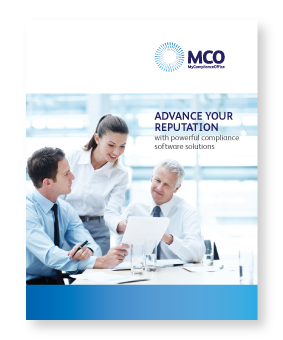How to Protect your Organization - FCPA
You can download a full copy of the slides from this webinar.
Full video transcript available below:
|
||||||||||||||||||||||
|
This webinar was co-hosted with MCG Consulting
Read our blog post: FCPA Fines in 2016 - Summary |
You can download a full copy of the slides from this webinar.
Full video transcript available below:
|
||||||||||||||||||||||
|
This webinar was co-hosted with MCG Consulting
Read our blog post: FCPA Fines in 2016 - Summary |

Download our four page Portfolio of Solutions to learn about;